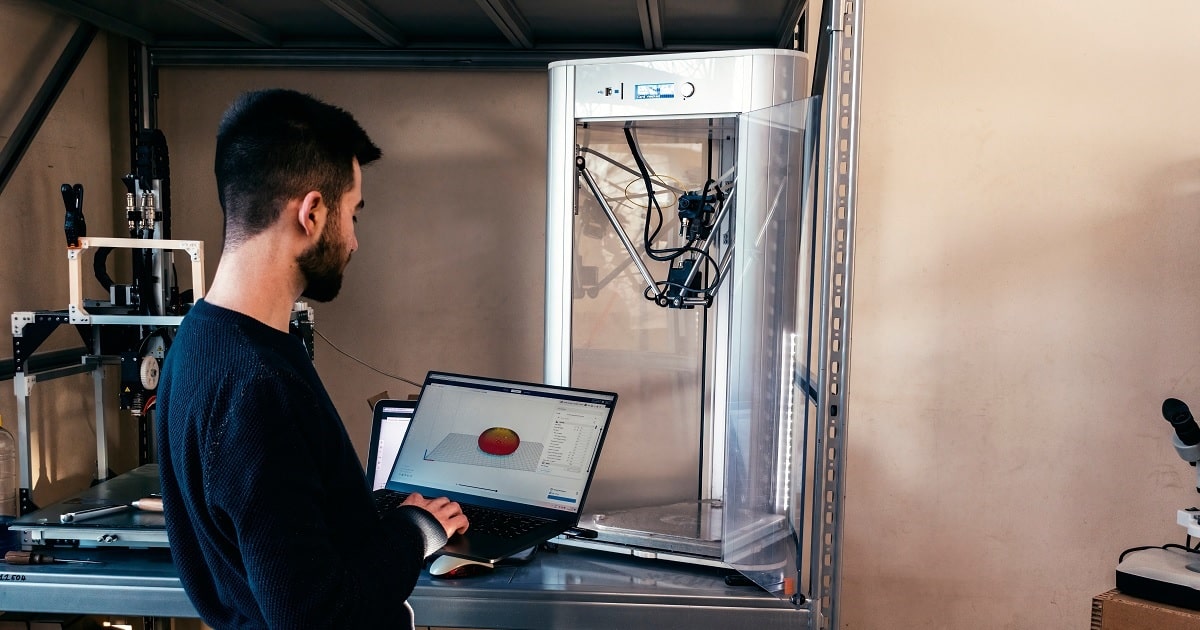
Supply Chain
Article | May 22, 2023
Transform the supply chain with cutting-edge warehouse automation tools. Enhance productivity, minimize costs, and deliver exceptional customer experiences to stay ahead in the competitive market.
In the rapidly evolving world of manufacturing, logistics, and supply chain management, adopting automation has become imperative for businesses aiming to maintain a competitive edge. By minimizing costs, enhancing efficiency, and reducing downtime, automation delivers optimal value for manufacturers. However, selecting the right partner can be challenging with numerous warehouse automation companies available. This article explains the features and benefits of top ten warehouse automation tools that offer expertise in improving business operations. These data warehouse tools provide comprehensive solutions to meet diverse needs of the logistics and warehousing companies and improve the supply chain performance.
1. 3PL WMS Software Solution
3PL WMS Software Solution is one of the leading warehouse automation tools for supply chain operations. This software has comprehensive features that automate and streamline warehouse processes, offering unprecedented efficiency. The tool seamlessly integrates with existing systems and provides total transparency and control. 3PL warehouse automation software boosts order throughput, reduces pick time, and automates billing effortlessly. Gain unprecedented insights through accurate, real-time reporting, ensuring inventory accuracy and reducing lost-inventory costs. This warehouse automation tool, designed as the warehouse management backbone, revolutionizes operations, enhances customer satisfaction, and drives exponential growth.
2. Datex 3PL WMS
Datex 3PL WMS offers the most innovative warehouse management tools that help implement warehouse automation in the supply chain process for transportation services. This software empowers transportation and logistics services, revolutionizing material handling, storage, trans-loading, cross-docking, and more. It supports diverse industries such as refineries, steel mills, and energy distribution facilities. Its flexibility makes it an optimal solution to handle any inventory type, including bulk materials, steel products, liquids, and hazardous materials. This automated warehouse software also enables multi-warehouse operations and accommodates various modes of transportation. Additionally, Datex 3PL WMS boasts a highly flexible billing system, allowing individualized billing strategies and capturing value-added services. Industry experts benefit from streamlined processes, improved efficiency, and accurate billing, ultimately enhancing their supply chain business and warehouse operations.
3. Deposco
Deposco Bright Warehouse is a game-changing warehouse management software solution that offers advanced features and capabilities to businesses of all sizes. This data warehouse tool empowers companies to pick, pack, and ship orders efficiently, optimizing processes to further improve order fulfillment while reducing operational costs. It provides strategic order allocation, workgroup segmentation, and optimized picking strategies, to achieve accurate and speedy order fulfillment. The software offers network-wide inventory visibility through advanced tracking, barcoding, and management capabilities. This solution automates shipping processes by seamlessly integrating with carriers, ensuring maximum accuracy and speed. Leveraging its material handling technology for automation can lead to significant productivity improvements. Businesses can enhance their capabilities by accessing a unified view of operations, utilizing customization options, and benefiting from direct API integration with shipping carriers.
4. Softeon
Softeon is a powerful warehouse management tools for supply chain automation. Its comprehensive WMS optimizes distribution operations, handling all essential tasks while offering unique functionality for a competitive edge. With a proven deployment success rate and flexible delivery options in the cloud or on-premise, Softeon empowers businesses to streamline inventory management and delivery processes. By integrating with their Warehouse Execution System (WES), warehouse and distribution companies can further enhance order fulfillment orchestration and optimization. Industry leaders like UPS Supply Chain Solutions and Sears Home Services rely on this warehouse automation software.
5. Logiwa WMS
Logiwa WMS offers a cloud fulfillment platform that combines WMS software and order fulfillment capabilities, enabling companies to operate a digital fulfillment network and expand their direct-to-consumer operations without the need for additional staff. The data warehouse management tool offers comprehensive warehouse and inventory management functionality, billing, and seamless integrations with over 200 ecommerce, accounting, and shipping solutions; it empowers 3PL providers to optimize order fulfillment, enhance speed and accuracy, and drive customer satisfaction.
6. SnapFulfill
SnapFulfill is one of the leading warehouse management technologies that empower companies across various industries, including B2C and B2B retail, third-party logistics, manufacturing, food and beverage, and electronics, to optimize their inventory, space, and resources. With SnapFulfill's class-leading warehouse management solutions, businesses can streamline operations and enhance efficiency. The software offers flexible deployment options and payment methods for diverse warehousing challenges. By utilizing SnapFulfill, industry experts gain access to advanced data warehouse tools that enable them to improve their supply chain business, enhance warehouse and distribution processes, and achieve optimal inventory management for increased productivity and profitability.
7. Indigo Software
Indigo WMS is an award-winning warehouse management system tool designed to enhance supply chain operations. It offers real-time control, visibility, and functionality for all warehouse processes. It is one of the best supply chain tools to track inventory in real-time, enabling efficient cycle counting, forward pick replenishment, and improved inventory forecasting. With Indigo WMS warehouse automation software, these tasks are automated, and the software ensures greater picking accuracy, reduces returns, and enables on-time and complete deliveries. It seamlessly integrates with existing systems, whether from SAP, Microsoft, Oracle, Infor, Sage, or other ERP, TMS, or SCP vendors, providing live and up-to-date data visibility across the entire supply chain process.
8. OrderWise
OrderWise is an order management system that empowers businesses in the consumer goods and retail sector to accelerate operations and deliver exceptional customer service. With its integrated features, OrderWise ensures seamless order processing and maximizes sales opportunities. By tracking orders from various sales channels, managing tight schedules, and making real-time adjustments, businesses can meet customer demands promptly. This is one of those supply chain management tools that provides valuable insights into customer purchase history and stock availability, enabling personalized recommendations and enhancing sales effectiveness. Whether for ecommerce, retail, or B2B sales, OrderWise streamlines order operations, making them smoother, faster, and more accurate.
9. Balloon One
Balloon One provides supply chain management tools, offering tailored software solutions to distribution, manufacturing, and e-commerce businesses. Its expertise lies in streamlining processes, optimizing resource allocation, and enhancing operational efficiency. With a focus on minimal disruption, Balloon One seamlessly implements software solutions, ensuring uninterrupted business operations. As an impartial advisor, the software offers both SAP Business One and NetSuite, thus allowing to recommend the ideal ERP system for each company's unique requirements. In addition, this software provides wholesale and distribution businesses with the robust HighJump WMS, a real-time warehouse management system that delivers scalability and flexibility.
10. Foxfire
Foxfire offers supply chain management tools specializing in Warehouse Management Systems (WMS). It offers WMS solutions, including features to optimize inventory, increase labor productivity, and enhance customer satisfaction. With over 20 years of industry experience, Foxfire has a proven track record of delivering measurable results to customers worldwide. This tool provides a comprehensive approach, including needs assessment, best practice recommendations, training, and ongoing support. Additionally, it is cost-effective by delivering low lifetime costs.
Conclusion
The warehouse automation market is experiencing significant growth, with a wide array of exceptional warehouse automation tools that offer high-quality solutions. Regardless of any special requirements, exploring the features of each warehouse automation tools is vital to identify the ideal fit for any business. Choosing the correct solution from the data warehouse tools list will help to improve inventory management and distribution efficiency through warehouse automation. Embrace the opportunity to streamline processes by leveraging supply chain management tools and warehouse automation solutions and experience the transformative power of automation to unlock the full potential of your business.
Read More

Management
Article | June 21, 2023
Purchasing software and supply chain management software are often mistaken for one another, but both have distinct functionalities. While purchasing software automates the procurement process, supply chain management software executes logistical transactions and manages supplier relationships. This report identifies the similarities and differences between the two software categories to help you understand which one is better suited to your needs.
What is purchasing software?
Purchasing software is an online tool that allows businesses to automate the process of procuring goods and services. It includes security compliance and reporting features.
Purchasing solutions offer integrated tools for invoice approval, inventory control, asset management, customer service, and work order management. They help manage contracts, analyze spending, track sales deliveries, and monitor inventory levels. They also assist in identifying bottlenecks in the purchase process, such as functions that have high expenditure.
Purchasing software offers invoice processing capabilities as well. Procurement professionals and accounting teams can use the tool to generate invoices, track invoice status, and monitor expenses via detailed reports.
What is supply chain management software?
Supply chain management software is a software platform that allows supply chain managers to automate the entire supply chain process—from acquiring raw materials to delivering the finished goods to consumers. The software provides tools for monitoring stock levels, including raw materials, and predicting future requirements based on the current inflow and outflow of inventory.
Supply chain management tools manage material handling, order fulfillment, and information tracking for stakeholders such as manufacturers, suppliers, and transport and logistics providers. They also track the returns of damaged goods, process refunds and insurance claims, and provide planning and forecasting tools for supply chain professionals.
What do they have in common?
Purchasing is a crucial component of supply chain management. Together, these processes significantly contribute to an organization’s procurement cycle. Despite the functionality differences, both the software categories have a few features in common, including supplier management, order management, and forecasting.
Which tool is right for you?
The answer to this question depends on your use case. If you’re looking for a tool that majorly focuses on acquiring supplies, opt for a purchasing software solution, as it will help you streamline the procurement cycle, maintain purchase order accuracy, and monitor supplier activities. However, if you wish to manage your entire supply chain operations, including supplier, transportation, warehouse, and inventory management, then investing in a supply chain software solution would be the right choice.
Read More

Supply Chain
Article | May 26, 2023
Contents
1. Accessing The State and Federal Benefits
2. A Learning Portal to Educate Rural Communities On EV Charging
3. The Significance of an Equitably Relevant EV Charging Network
Electric Vehicles (EVs) are making waves in cities and are more than just the latest trend in transportation. With the advancement of the EV charging network and its deployment across urban areas, experts are asking what’s next and how this growth can be replicated in rural areas.
1. Accessing State and Federal Benefits
Based in Oregon, Forth is an EV research and advocacy group that recently announced a partnership with General Motors to build grant templates that can help rural communities win and access state and federal grant money to build EV charging networks. The templates will be provided free of charge and cover 80% of a complete grant. Geoff Gibson, the senior program manager for Forth, believes this will give rural communities the impetus to seek out the grant money and get over the initial hurdle of framing a grant proposal.
2. A Learning Portal to Educate Rural Communities on EV Charging
Forth also announced the slated launch of a learning portal that will address the lack of know-how on deploying a charging program for EVs. The portal will empower communities with not just the knowledge of implementing charging programs but also their significance and long-term impact on the community. The learning portal will tentatively go live in 2023 and will be free for local communities, counties, cities, and states, as well as community organizations. The program will be accessible for a year and could be further extended.
According to Steve Lommele from the Joint Office of Energy and Transportation, he reiterated the importance of building a national EV charging network. He states that this is the first time a major program has been put in place that covers all 50 states in the U.S., including Puerto Rico and Washington D.C.
3. The Significance of an Equitably Relevant EV Charging Network
Deploying EV charging stations in rural areas has to be meaningful for the communities that will be using them. Forth’s Geoff Gibson emphasizes that the needs of the communities need to be given priority when designing the charging network. For instance, DC charging or charging that is publicly accessible should be preferred at trailheads.
EVs as part of our transport in the future is inevitable and charging networks and program need to be prioritized to ensure all communities are able to access its benefits equally.
Read More

Software and Technology, Logistics
Article | July 8, 2022
Introduction
From warehouse robots to delivery drones, the supply chain is experiencing a tremendous upheaval. AI promises a totally autonomous and self-organized future supply chain. A fleet of vehicles utilizing a swarm algorithm can enhance cargo yard throughput; a trusted peer-to-peer ledger on blockchain architecture could change compliance in the sector; and wearables, mobile robotics, and machine learning technologies could speed up order fulfilment. IOT e-brokerage solutions can link shops to couriers and transporters with a click. Tomorrow's supply chain will be leaner, quicker, and self-organized. A few innovative technologies will fuel this unparalleled rate of change over the next 15 years. Here are the major technologies that are shaping the future of the logistics industry.
Logistics Technologies for the Future
Shipment Tracking Systems
Previously, customers ordered shipments, had an anticipated arrival date, and then were kept in the dark until they chose to call. Customers can now access shipping and tracking systems around-the-clock due to developments in the internet and software. This not only enhances the customer experience (cx), but it also saves the business time and money.
Internet of Things (IoT)
The IoT reduces costs and delays by minimizing hazards in the supply chain. Cabs, cargo ships, trains, etc., have sensors that link to an alarm system or dispatcher. These sensors analyze and communicate information to the crew, who learns about hidden threats. IoT isn't a new technology, but it continues to influence logistics by improving in-transit visibility and delivery.
Radio Frequency Identification (RFID)
RFID technology has been used for a few years to monitor inventories labor-efficiently. A product tag or sensor produces radio waves. The company processes the data. RFID tags are similar to barcodes, but their faster information transport and data processing appeal to companies and the direction of technology. Many organizations use RFID tags to track containers in warehouses.
Enhanced GPS Accuracy
Almost everyone utilizes GPS on their vehicles or smartphones. These devices' accuracy has improved over time, assisting lost drivers and enhancing the supply chain. By monitoring truck locations and boosting hauls with current traffic data, GPS increases efficiency and customer satisfaction.
Closing Lines
Unprecedented times have produced unprecedented transformations that will last for generations. Changing demographics, technology improvements, and COVID-19 impacts are altering global supply networks. We must understand the driving factors and act on what we learn to adapt and rise to the situation. For the sake of our current workforce and future generations.
Read More